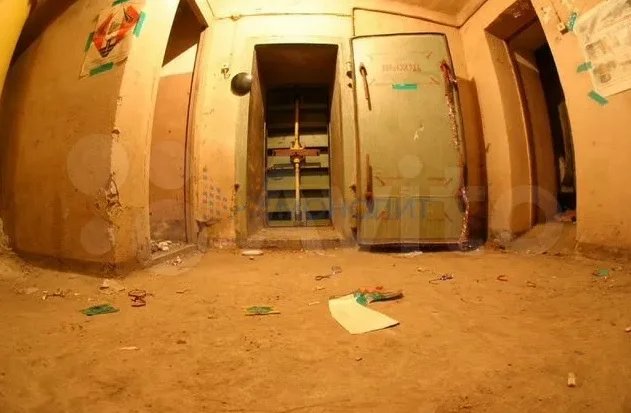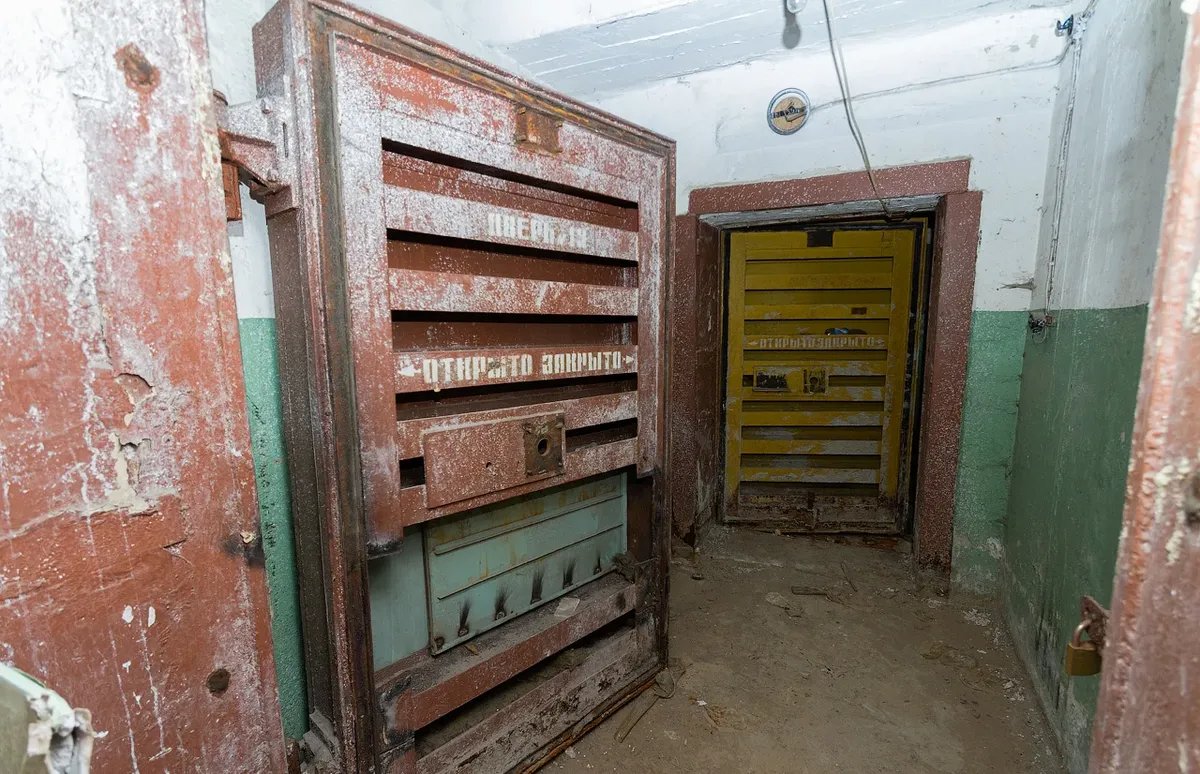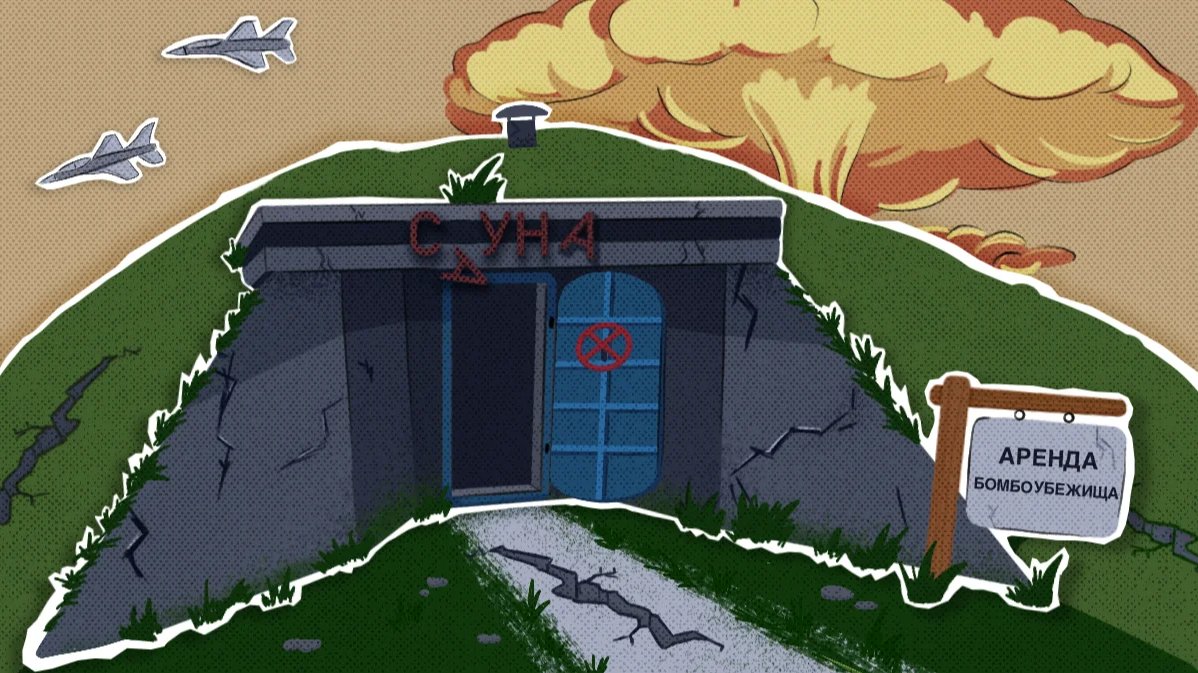After the start of the war in Ukraine, when explosions started happening in Russian border regions, too, Russia’s government officials realised they had to address the issue of the state of protective structures for civilians. Furthermore, common people have no way of knowing where to hide in case of an attack — bomb shelters’ locations turned out to be classified information. However, government officials, their relatives, and business partners had time to come up with ways of making money on classified protective shelters, some of which had not been used for years. Some of these shelters became saunas, beauty salons, bars, auto repair shops, and even mushroom farms. Rich Russians build private bomb shelters with gyms inside. Meanwhile, a company belonging to Russia’s Agency for State Property Management, the task of which is the maintenance of bomb shelters, signs multimillion contracts with firms of Deputy Minister of Industry and Trade Vasily Shpak. Novaya Gazeta. Europe reports on who and how earns money through Russia’s civil defence.
In search of a shelter
Russian citizens have not believed in the idea of a “small, victorious war” since the beginning: during the first days of the war in Ukraine, the number of searches of the term “bomb shelter” increased by hundreds of times. The information about shelters was also being sought by the citizens of Russian regions bordering Ukraine — the Belgorod, Voronezh, Bryansk, Krasnodar, and Kursk regions, as well as Crimea and Sevastopol. In April, a month after the start of the war, Russia’s Secretary of the Security Council Nikolay Patrushev even ordered a review of bomb shelters and other protective civil defence structures located in these regions.
This is how Russians looked up ‘bomb shelters’ on the Internet
Weekly searches of the term “bomb shelter” per 100,000 people
The Soviet Union, which had been preparing for a nuclear war, has left Russia with thousands of bomb shelters. How many of them there are and where they are located, no one knows for certain — civil defence shelters are under the jurisdiction of different government bodies. Local and regional authorities are responsible for some of them, military and law enforcement agencies — for some others. The shelters are owned by Russia’s Federal Agency for State Property Management, Rosimushchestvo, however, the Ministry of Emergency Situations and Prosecutor General's Office are tasked with their maintenance.
In the last decades, the majority of these shelters were converted into private property — they were turned into saunas, beauty salons, bars, auto repair shops, and even mushroom farms. Often, they serve as locations for warehouses, while some of them are abandoned entirely. In some cities, these turned-private facilities can be bought or rented via Russian online marketplace Avito. For example, renting a bomb shelter can cost from 30,000 (€480) to 1 million rubles (€16,000) in Moscow, another one is being sold for 1.8 million rubles (€28,800) in Nizhny Novgorod, while a similar space is being rented for 10,000 rubles (€160) per month in the Belgorod region.

A bomb shelter in Nizhny Novgorod, the ad for which is posted on Avito. Screenshot
In 2016, Russia’s Accounts Chamber reported that 95% of all bomb shelters in the country were not set up to receive civilians in case of war or emergencies.
From 2013 to 2016, the total number of protective civil defence structures decreased by 1,597 (or 9%), amounting to 16,448 objects.
Auditors concluded that the government had not been financing the bomb shelters’ maintenance for more than 20 years, during which time the ownership of most protective civil defence structures had not been established, leading to a lot of objects having been illegally privatised. Limitation periods to bring them back into state ownership expired. In response to Novaya Gazeta. Europe’s inquiry, the Accounts Chamber representatives stated that the agency had not checked the state of bomb shelters after 2016, while the information about the current number of protective structures “is noted to have limited access”. The Agency for State Property Management did not answer the inquiry on the number of protective structures and their state.
In a broad sense, bomb shelters are not meant to hide the entire population in case of danger. The focus is put on saving lives of employees of enterprises and government agencies — both the defence-related agencies and those that will keep operating, for example, during war. Basements and other basement-like spaces are meant for shelter of civilians.
The size of a protective structure and its equipping depends on its purpose. Most bunkers were built during the Soviet times and were meant to shelter from a nuclear attack. Structures like that are supposed to be hermetically sealed, have doors that can withstand a shock wave, be equipped with sleeping places, bathrooms, showers, electric generators, ventilation systems, and supplies of water, food, and medicine. The Prosecutor General’s Office requires by court orders that all these conditions are met.
We have examined several hundreds of court decisions about the state of bomb shelters in the regions bordering Ukraine. According to them, the situation has not improved since 2016. From year to year, the Prosecutor General’s Office and other regulatory authorities issue injunctions and fines to directors of enterprises, hospitals, schools, and kindergartens for improper maintenance of protective structures. In response, they blame the lack of funds.
Court decisions on cases about bomb shelters in border regions*
From 2016 to 2022, courts of general jurisdiction and arbitration courts
2016. “<…> it was found that the construction was in critical condition, with further use not being possible. Restoration of the bomb shelter is not advisable, seeing as the cost of the restoration exceeds its actual value.”
“<…> L.G. Khalieeva pleaded guilty during the proceedings and explained that the aforementioned injunction had not been carried out due to the lack of funding for the specified needs from the founder of MBDOU Kindergarten Lastochka — the
district administration. The fallout shelter was commissioned in 1979, it needs major repairs.”2017. “<…> During the court hearing, the principle of MBOU-School#2 pleaded not guilty of committing the incriminated offence, she explained to the court that the institution had had no knowledge of there being a shelter in the school building, seeing as there is no information about the protective structure in the school’s technical passport. Currently, a cloakroom and storage facilities are located in the basement space of the school — in the shelter. Conversion of the shelter in accordance with the law is not feasible due to the difficult financial situation of the educational institution, as well as the inexpediency of conversion due to the significant financial costs.”
“<…> During the proceedings, N.I. Golovin pleaded guilty. He clarified that his rights and obligations under Article 51 of the Constitution of the Russian Federation, Article 25.1 of the Code of the Russian Federation on Administrative Offences had been explained to him, and he had no need for an attorney. He stated that these violations had been committed due to the underfunding <…>”

A bomb shelter in Belgorod. Photo: belgorod.livejournal.com
Furthermore, it is difficult to maintain bomb shelters without carrying out major repairs and installing new equipment, which can cost tens of millions of rubles.
For example, the Belgorod Prosecutor General’s Office demanded that air purification filters be replaced in the bomb shelter of the Starooskolsky dairy plant, which had not been replaced since 1987. A Bryansk kindergarten was asked to replace the same filters, but it was unable to comply with the requirement — these filters have long since been discontinued. In 2019, the manufacturer of radio technical reconnaissance equipment All-Russian Scientific Research Institute Gradient was also unable to comply with the requirement of the Prosecutor General’s Office — the specific filters cost more than 9 mln rubles (€144,000), a sum that the institution could not afford to pay.
Maintenance of bomb shelters is too costly for the regions, too.
In April 2022, Sevastopol’s authorities tried to, according to the arbitration information, transfer 79 protective civil defence structures to federal ownership, seeing as they “create an unreasonable load on the city’s budget”,
but the court denied the request for formal reasons.
In recent years, the courts have regularly denied requests of transfer to state ownership, however, this pattern varies from region to region. For example, the Belgorod region courts have satisfied such claims in recent years, while the Kursk region courts, when dealing with similar cases, have backed businessmen and denied the return of such structures to the state.
At the same time, the demand for private bomb shelters has grown significantly. According to directors of building companies that deal with such requests Novaya Gazeta. Europe talked to, the cost depends on the purpose of the structure and the level of protection. It can vary from 100,000 (€1,600) to several million rubles. “Depends on the fantasy and how much money they have. Someone needs to be able to shelter for one day — that’s one thing, if we talk about sheltering for a month — that’s another level,” says CEO of company DeluxBunker Artur Tolasov, adding that there have been requests for a bomb shelter with a gym built inside it.
According to Tolasov, they mostly receive orders from non central regions. For example, his company is currently drawing up plans for a 60 square metres shelter for four people — a private order from Kaliningrad.
Bunker vendors
Like any real estate, bomb shelters have become a valuable asset — they are used to make money not only by their new owners but also by the government officials responsible for their maintenance.
Since July 2021, Voronezh’s central district court has been hearing a bribery case. The bribes were received by deputy head of civil defence department of the Voronezh region Ministry of Emergency Situations, lieutenant colonel Alexey Antipov, head of the legal support and registration of property rights unit of the Agency for State Property Management territorial department Daniil Konoplin, and head of the Voronezh branch of state enterprise Ekran Arkady Goncharov. According to investigators, all three men were selling bomb shelters — in exchange for bribes from local businessmen, the officials allegedly had issued deregistration certificates for several serviceable protective structures that the businessmen wanted to become owners of.
In this case, a several million bribe is economically sound — to legally remove a shelter from the register and use it as one sees fit, one needs to go through a complicated legal process. According to several law firms interviewed by Novaya Gazeta. Europe, this process, on average, costs 3-5 million rubles (€48,000-80,000). “The process is complicated, there are a lot of examinations that need to be done — geology, geodesy, hydrology. There are a lot of people [willing to become a shelter owner], but the only ones to finance such a venture are those who will see profit [from the purchase],” says team leader for company Alternativa that specialises in removing bomb shelters from the register.
A little-known organisation, specifically created by the Federal Agency for State Property Management, is responsible for the operation of civil defence objects. The organisation is called Performing Maintenance of Protective Means and Structures Company Ekran, and its branch manager is currently being sued in Voronezh.
The headquarters of the company were first located in Yekaterinburg, then in Moscow. In 2015, the headquarters were moved to Vladimir. Ekran has been headed by Vladimir Mikhailov for the last 10 years — an ex-military man who served in the Main Directorate for International Military Cooperation of Russia’s Ministry of Defence. The organisation is responsible for hundreds of protective structures, as well as other real estate. Ekran spends hundreds of millions of rubles on their maintenance.
The majority of contracts signed by Ekran are on repair and assembly work to be performed on civil defence objects. Another big part of the organisation’s expenses comes from property valuation services, the property in question being the one Ekran is responsible for.
According to Novaya Gazeta. Europe’s findings, several companies have basically monopolised both of these work fields. The companies are connected to Russia’s Deputy Minister of Industry and Trade Vasiliy Shpak.
In his ministry post, Shpak oversees the radio electronic sector. He has become infamous to the public after his statement on finding microphones in foreign-made irons, the discourse on forced installation of ignition interlock devices in cars, as well as his presentation of a certain machine allegedly capable of suppressing coronavirus with microwaves.

Russia’s Deputy Minister of Industry and Trade Vasiliy Shpak. Photo: utro-news.ru
Born in the city of Samara, Shpak was a businessman before becoming a government official. He co-founded several telecommunications companies, a computer engineering special design bureau, science and technology centre of modern navigation technologies Internavigation, and the Samara branch of All Russia Public Organisation Business Russia. He also dabbled in real estate.
Shpak also earned money through the state. His and his wife’s companies leased assets of the Syzran part of the Samara River Port and of Samara’s airport Smyshliayevka for 49 years — they earned money through subleasing these objects. Companies connected to Shpak also earned money through receiving state contracts from the Samara region department of the Federal Agency for State Property Management. In 2014, Shpak was appointed Deputy General Director for Economics and Finance of the Microelectronic Equipment Scientific Research Institute Progress — property of Russia’s State Corporation of Advanced Technology Industrial Product, Rostec. In 2015, he became its head.
Shpak was not the only one to move to Moscow in 2014 — so did the Samara company Otsenka (Assessment). The company changed its registration to the address of the new place of Shpak’s employment — the address of the Progress Institute building. Several months later, law firm Femida also registered at this address. Since 2015, both companies have been receiving the major part of Ekran’s contracts on property valuation (the property being bomb shelters) and organising shelter lease auctions.
Ekran’s contracts on repair and technical maintenance of bomb shelters were not signed with other people’s companies. In the last several years, only two companies signed such contracts worth tens of millions of rubles — RST and Bauproekt. The only person listed as the companies’ founder and chief is a certain Rinat Galikhanov. Both firms show classic signs of having been created for specific contracts — both of them signed contracts almost immediately upon their creation, while their bids were the only ones filed.
Furthermore, RST is registered to the Moscow address of Ekran. In April 2022, company Lazury Waters also was registered at that address — its founder’s name is Nikolay Korenkov, which is also the name of Ekran’s deputy director and procurement commission chairperson. Bauproekt’s registered address is a basement on Moscow’s Pokrovka street. According to arbitration’s data, this 232 square metres basement space is listed as a bomb shelter — two months after being registered, the company leased it from Ekran.
In total, companies connected to Deputy Minister of Industry and Trade Vasiliy Shpak have received contracts worth more than 100 mln rubles (€1.6mln) in the last several years. Shpak and head of Ekran Vladimir Mikhailov did not answer to Novaya Gazeta. Europe’s inquiries about their ties to these companies.
Join us in rebuilding Novaya Gazeta Europe
The Russian government has banned independent media. We were forced to leave our country in order to keep doing our job, telling our readers about what is going on Russia, Ukraine and Europe.
We will continue fighting against warfare and dictatorship. We believe that freedom of speech is the most efficient antidote against tyranny. Support us financially to help us fight for peace and freedom.
By clicking the Support button, you agree to the processing of your personal data.
To cancel a regular donation, please write to [email protected]

